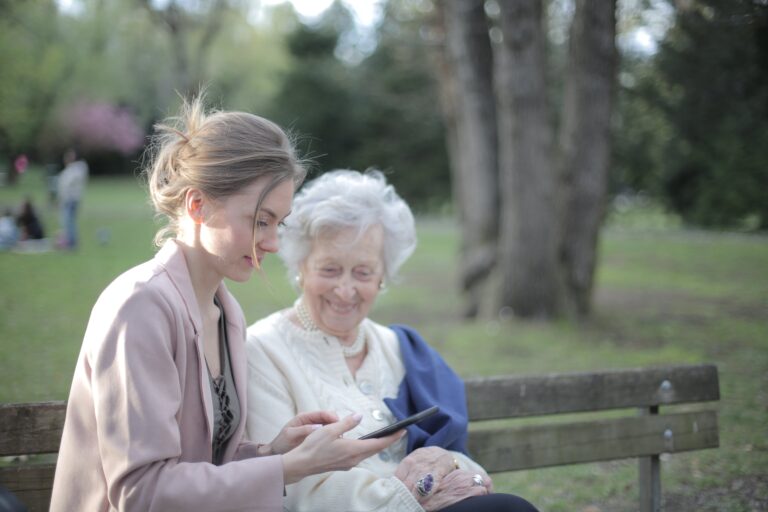
Protecting Elders from Guardianship Abuse
Issues Inherent in the Guardianship System
Elder law attorneys see firsthand the complexities and potential pitfalls of guardianship arrangements. The recent investigation into guardianship practices in Florida, as reported by the Washington Post, underscores the urgent need for vigilance and reform in this area. While guardianships are designed to protect the vulnerable, they can sometimes lead to significant abuses, including forced isolation and financial exploitation. This article aims to shed light on the complexities of the guardianship system, expose issues related to guardian-inflicted elder abuse and provide practical advice for avoiding guardianship by planning before becoming incapacitated.
What Is Guardianship?
Guardianship is a legal process where a court appoints an individual (the guardian) to make decisions for someone deemed unable to make decisions for themselves (the ward). This arrangement is often necessary for seniors who can no longer manage their affairs due to health issues like dementia or stroke. It’s estimated that more than one million Americans are in a guardianship, a number that will only grow as the U.S. population ages and elderly people no longer have family living nearby to provide the care and protections they need.
A Cautionary Guardianship Case
Douglas Hulse, a former pilot from Florida, was hospitalized due to a stroke. After his recovery period ended and his condition did not improve, Orlando Health South Seminole Hospital could not discharge him without having an assigned caretaker. Therefore, the hospital petitioned the court to assign him a guardian due to the inability to locate his family. His loss of control over his assets and personal decisions to a court-appointed guardian is a stark reminder of guardianship risks. His guardian, responsible for 19 other wards, made questionable decisions like selling his home without seeking to locate his family.
What Role Do Hospitals have in Guardianship Appointments?
Hospitals often play a significant role in initiating guardianship proceedings. Cases like Hulse’s in which the hospital petitions for a court-appointed guardian are becoming more common nationwide, especially when elderly patients have no known family or friends to care for them. While this process is meant to ensure the patient’s well-being, it can inadvertently lead to the appointment of guardians who may not act in the best interest of the ward or, worse, will exploit the senior ward through financial abuse or other ways.
Why Is the Adult Guardianship System Allowing Abuse and Exploitation of Wards?
The discrepancies in the guardianship appointment and training process further complicate this issue. There is often a lack of standardized procedures for appointing and monitoring guardians, leading to inconsistent practices and an increased risk of abuse. This situation calls for a more rigorous and standardized approach to guardianship appointments at the state level, ensuring that only qualified and ethical individuals are entrusted with such significant responsibilities.
How Do Guardianships Put Seniors at Risk of Abuse?
The Hulse case highlights several risks associated with guardianship:
- Loss of Personal Freedom and Fundamental Rights: Once under guardianship, individuals may lose basic rights, such as voting, consenting to medical treatment, managing their finances, or deciding where to live.
- Financial Exploitation: Guardians have significant control over the ward’s assets, allowing them to access financial accounts directly and conduct financial transactions without oversight. This access can lead to mismanagement or outright theft.
- Lack of Oversight: Guardianships often lack sufficient legal or administrative oversight, allowing unscrupulous guardians to take advantage of their wards. Because a judge appoints guardians, they often do not face punishment or legal recourse for abusive behavior.
How to Protect Yourself From Court-Ordered Guardianship
- Advance Planning: The best defense against guardianship abuse is advance planning. This includes setting up durable powers of attorney for health care and finances, which allow you to designate someone you trust to make decisions on your behalf if you become incapacitated.
- Regular Monitoring: If guardianship is unavoidable, family members should stay involved and monitor the guardian’s actions. Regularly reviewing financial statements and staying in close contact with the ward can help detect any irregularities.
- Choosing the Right Guardian: If a guardian is necessary, choose someone trustworthy and capable. This could be a family member or a professional with a good reputation and credentials.
- Legal Oversight: Courts should have robust systems to monitor guardianships. This includes regular reporting by guardians and audits of their financial management.
- Awareness and Education: Seniors and their families should be educated about the risks of guardianship and the importance of advance planning. Community programs and legal clinics can provide valuable information and resources.
- Advocacy and Reform: Advocacy for better laws and policies around guardianship is crucial. This includes pushing for reforms that increase transparency, accountability and oversight in the guardianship process.
Key Takeaways:
- Guardianship can lead to significant abuses, including loss of autonomy and financial exploitation.
- Hospitals often initiate guardianship proceedings for incapacitated patients without family, which can lead to inappropriate guardian appointments.
- Advance planning, such as establishing durable powers of attorney, helps prevent guardianship abuses.
- There is a need for increased legal oversight and reform in the guardianship system to protect the rights and well-being of the elderly.
Work with an experienced elder law or estate planning attorney to ensure that someone you love does not fall prey to abuse but has a legally documented estate plan to protect them and their financial well-being.

